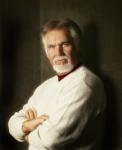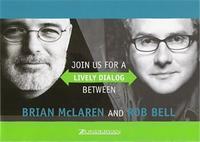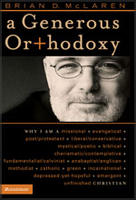Joshua and I have been chatting for quite a while about what it means to be a Christian. Up until now, he hasn't been ready and we've been cool with that, planting seeds here and there and letting the Holy Spirit do His thing.Then there was today...--------------
Scene One
--------------Joshua and I hopped in the van to head to the library. I put on a CD that had a song with the word “heaven” in it.
Joshua: “What did they say about that heaven?”
Me: “There’s a door open to heaven to anyone who wants to come in.”
Joshua: “What’s heaven?”
Me: “Heaven is where Jesus is King and where he wants us to come be with him when we die.”
Joshua: “Oh… I never knew about that before.”
Me: “When we ask Jesus into our heart, he comes in and then lets us be with him in heaven one day.”
Joshua: “Wow!”
Me: “Is that something you want to do, buddy?”
Joshua: “What?”
Me: “Do you want to ask Jesus into your heart? Do you want to go to heaven one day?”
Joshua: “SURE!”
Me: (stopped the car, turning around to head back home) “Okay… let’s go tell mom and then we’ll pray together.”
Joshua: “Okay!”
--------------
Scene Two
--------------Me: “Joshua has something he wants to tell you.”
Katie: “What?”
Me: “Tell Mommy.”
Joshua: “Tell mommy what?”
Me: “Tell her what you want to do.”
Joshua: “Um… I don’t remember.”
Me: “Remember about heaven?”
Joshua: “Oh, yeah! Mommy, I want to ask Jesus into my heart so that I can go to heaven!”
Katie: “You do?”
Joshua: “Yeah!”
Me: “Alright, let’s pray together… tell Jesus what you want to do.”
Joshua: (shy) “I don’t know what to say.”
Me: “Do you want me to help you?”
Joshua: “Um… yeah.”
Katie: “Maybe he’s not ready…”
Me: “Joshua, are you sure you want to do this?”
Joshua: “Yeah.”
Me: “Okay… Dear Jesus…”
Joshua: “Dear Jesus…”
Me: “Thank you for loving me…”
Joshua: “Thank you for loving me…”
Me: “Thank you for forgiving me…”
Joshua: “Thank you for forgiving me…”
Me: “Please come into me…”
Joshua: “Please come into me…”
Me: “And help me to let you be my God…”
Joshua: “And help me to let you be my God…”
Me: “Anything else, Mom?”
Katie: “Thank you, Jesus, for dying on the cross…”
Joshua: “Thank you, Jesus, for dying on the cross…”
Katie: “And for forgiving me…”
Joshua: “And for forgiving me…”
Katie: “In Jesus’ Name, Amen.”
Joshua: “Amen.”
Katie: “Happy Birthday.”
Joshua: “Is it my birthday?”
Katie: “Kind of.”
Me: “Joshua, do you know what just happened?”
Joshua: “What?”
Me: “Let me show you from the Bible… (I read from Luke 15) The Bible says that everyone in heaven is throwing you a party right now! All of the angels and Jesus think this is the most super-duper, coolest, awesomest, greatest, sweetest, most incrediblish thing you could ever do… and we do, too!”
Joshua: “WOW!”
Me: “That means when we die someday, we really keep on living and will all be together in heaven.”
Joshua: “All of us?”
Me: “Mommy and Daddy are Christians, too. You are, too, now. Everyone except for Daniel, but one day he will, too.”
Joshua: “I don’t want him to be left all alone!”
Katie: “We don’t either.”
Me: “That’s why we need to tell him about Jesus and heaven… that’s why we need to tell everyone.”
Joshua: “Cool! Hey, watch this…” (bounces on bed)
Me: “You want to tell Grandma?”
Joshua: “Sure!”
-----------------
Scene Three
-----------------(knock, knock)
Grandma: “Yes?”
Joshua: “It’s me… Joshua.”
Grandma: “Coming.”
Joshua: “Grandma – I asked Jesus into my heart!”
Grandma: “You did?”
Joshua: “Yeah! And I will go to heaven one day!”
Grandma: “Cool! Grandma will, too!”
Joshua: “Cool!”
Me: “You want to call Grandpa?”
Joshua: “Yeah!”
Grandma: “Okay, Grandma will call him.”
(fade to)
Joshua: (on the phone) “Grandpa, I asked Jesus into my heart…. Yeah, and I will go to heaven someday… uh. Huh…. Okay, love you, too!”
Me: “Cool!”
Joshua: “Who else can I call?”
(fade to Joshua calling everyone he knows)
Joshua: “Hi, it’s me Joshua. I have GREAT NEWS! I asked Jesus into my heart and I’m going to go to heaven! Are you going to go to heaven? Okay, bye!”
Me: “Hey… let’s dance.”
Joshua: “Okay!”
(fade out of a bunch of wiggling and dancing around)
---------------
Scene Four
---------------Joshua and I went to the park shortly after he prayed. Turns out he was going to get one of his birthday gifts a bit earlier. We walked in the woods and had a man-to-man chat.
Me: Joshua, I want to tell you a story.
Joshua: “Okay, you can tell me the story while we walk.”
Me: “That’s a great idea. Do you remember the story about how God created the world and Adam and Eve?”
Joshua: “Yeah, and that bad snake who made them eat the fruit.”
Me: “Right. Before they ate that fruit, they made lots of good choices, right?”
Joshua: “Yeah.”
Me: “But then they made a real big, bad one, right?”
Joshua: “Yeah, and they had to leave the garden.”
Me: “Right. Ever since then we’ve been away from God. That’s why Jesus came… to help come into us so that we could be with God again.”
Joshua: “Wow. How did he do that?”
Me: “He became a person. Remember at Christmas time we remember about how Jesus was a baby?”
Joshua: “Yeah.”
Me: “Well, at Easter – which is pretty soon – we remember that Jesus also grew up and became a man. He did that so he could die on a cross for us.”
Joshua: “Oh.”
(Right then and there, I happened to notice the ice on the pathway had melted into the formation of a cross. No kidding, an actual cross right there on the sidewalk right at this point in the story.)
Me: “Look at that right there, Joshua.”
Joshua: “Wow.”
Me: “That’s like a cross, right? Jesus died on the cross for us, but do you know what happened after that?”
Joshua: “What?”
Me: “He came back!”
Joshua: “YES!!!!! ALRIGHT!!!!” (jumping around)
Me: “Because Jesus died and lived again, when our bodies die – when they break and don’t work anymore – we will live again, too, with God!”
Joshua: “Wow. Hey, Daddy – look at that thing.”
(Joshua pointed to a bridge of ice that crossed over from one side of a small river to the other. No kidding, a bridge right there at this point in the story. I looked at the sky and smiled.)
Me: “Do you see how far apart those two sides are? Look at how that ice is kind of a bridge from one side to the other.”
Joshua: “Yeah!”
Me: “That’s what Jesus did. Through the cross we have a bridge to get from one side to the other side where God is.”
Joshua: “Cool!”
(We kept walking and finally arrived to a special spot where the pathway ended – a grove cut into the trees)
Me: “Joshua, I want to have a special talk with you. Can you sit down and listen?”
Joshua: “Okay.”
Me: “Today you asked Jesus into your heart. And today you became a Christian.”
Joshua: “What’s a Christian?”
Me: “It means that you asked Jesus into your heart and started a new, special friendship with him. He’s your King, now. It means you belong to God and God belongs to you.”
Joshua: “Wow!”
Me: “And so today you get to have a special present. I want to give it to you now, okay?”
(perking up) “What is it?”
(I pulled out a Bible – “Super Heroes Of The Bible” – and gave it to him)
Me: “Joshua, this is your very first Bible with all the important words – not just pictures and some words, but all of the words you will ever need to help you follow God.”
Joshua: “Wow!”
Me: “Look at me, buddy… (he looks up) There are no lies in this book. It is God’s truth, and because it is true it is like a sword you can use when the snake or dragon tries to lie to you.”
Joshua: “I never knew that before!”
Me: “This book is like a sword… which is why I have one more thing to give you.” (I reached over to the long box I had been carrying with us the whole time and pulled out a sword – a real, authentic heavy-duty sword – and showed it to Joshua. His eyes widened)
Joshua: “WOW! A real sword! A super-strong sword!” (he didn’t know whether to take it or not)
Me: “I want you to hold this sword with me…” (he holds it as I still hang on to it) “It’s heavy, isn’t it?”
Joshua: “Yeah.”
Me: “Joshua, do you remember how in the books we read about knights that someone who is already royalty or a knight is the one who helps another become one?”
Joshua: “Yeah.”
Me: “Jesus did that for us, and since I’m your dad and he has done that for me, I want to celebrate that you have asked Jesus into your heart. You’ve become a Christian, one of God’s knights… and so I dub thee… (putting the sword on either side of his head as he knelt) Joshua Myles, a Christian, and one of God’s knights.”
(huge smile)
Me: “Now, do you see your Bible? It’s like your sword… it’s full of all kinds of Bible muscles, and as you get to learn more about it and learn a new Bible muscle, we will write the number of that Bible muscle on this sword… as you get older, you will get stronger with your Bible muscles and stronger in your body muscles… and you will be able to use this sword in the way it was intended.”
Joshua: “Cool.”
Me: “Now stand up, and hold your swords…”
(with the Bible under his arm, he took the 42 inch metal sword and tried to hold it with both hands… he did okay, and occasionally would drop it)
Joshua: “Daddy, what is that black thing on the end?”
Me: “Let me show you… (taking the sword and taking off the protective edge covering) Look at what happens when we poke the sword into the wood.”
Joshua: “It makes little dots and breaks it.”
Me: “Right. That’s why you need to know that this is not a toy. Swords are very sharp on the end and usually very sharp on the sides. That’s why there is a handle. It keeps you from grabbing the sword in the wrong way and the top of the handle keeps your hand from sliding up. It’s like when we follow God’s rules… they are like boundaries or handles that keep us from cutting ourselves and getting hurt.”
Joshua: “Oh. Hey, can I make those dots?”
Me: “Only for a minute with Daddy, okay?” (we poked a bit at the wood)
Joshua: “Oh… hey, Daddy… can we go over there?” (pointing to where the wooden path ends and the raw leaves, dirt, thorns, and trees are)

Me: “You know, it’s not too safe over there. Are you sure you want to?”
Joshua: “Yeah, we will use our swords to help us… and you can hold my hand!”
Me: “Sounds like a great idea, buddy.”
(And then we did.)
 Recently I was hanging out over some commonly-excusable American addictions (coffee and tea) with a local church planter whom I was hoping to glean some insights from. As a bit of context, I am pursuing the dream of a church plant in the near future and am highly interested in hearing some thoughts on the insides of what can make this movement the healthiest it can possibly be. We spoke about this and mused about that, eventually coming around to the topic of the "emerging church."
Recently I was hanging out over some commonly-excusable American addictions (coffee and tea) with a local church planter whom I was hoping to glean some insights from. As a bit of context, I am pursuing the dream of a church plant in the near future and am highly interested in hearing some thoughts on the insides of what can make this movement the healthiest it can possibly be. We spoke about this and mused about that, eventually coming around to the topic of the "emerging church."










